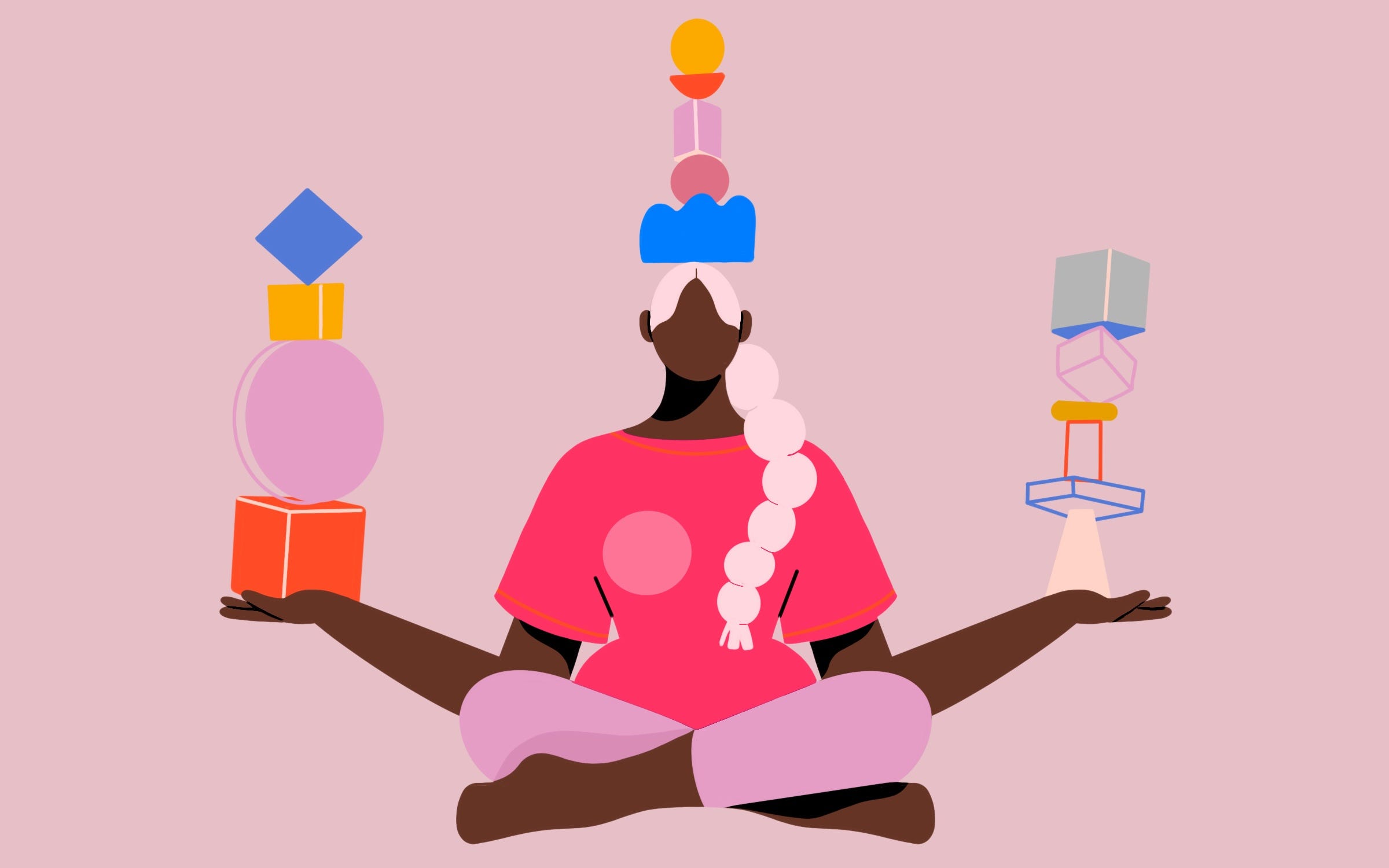Tips for coping with academic burnout
Dealing with burnout while going to school, either in person or virtual, is just plain exhausting. You have to juggle going to classes, working on classwork and homework assignments, studying, making time for yourself, possibly participating in extracurricular activities and trying to get finish everything in time so you can have enough hours of sleep to function the next day all the while feeling like you have no motivation to do anything.
With spring break over and students back to school, sleep schedules are in dire need of being fixed, the feeling of senioritis is taking over, school days are being counted down until summer break begins and most importantly, burnout is becoming overwhelming for many students. Listed below are a few lifestyle and health tips to help you cope with burnout.
Email your teachers about your situation
To ensure not feeling too overwhelmed with everything, you should email your teachers about your situation and let them know how you’re feeling. And to ease your concern if you’re worried about your teachers not understanding, don’t be afraid to reach out to your teachers to let them know what you’re going through and ask them for help. Your teachers are there to help you, and giving more insight as to what you’re struggling with will show that you’re responsible and not afraid to reach out during challenging times. With many students feeling drained due to virtual learning, your teachers will more than likely sympathize with the trials and tribulations you’re facing and they might also suggest a time to meet so you can work together on creating a schedule for schoolwork.
Spend time focusing on yourself
Even though this is a recommended general health tip when it comes to taking care of yourself and your health, spending some time to focus on yourself is the best way to regroup and prioritize your mental health. Spending time to focus on yourself doesn’t necessarily mean prying yourself away from your friends and social life but rather taking more time out of your day to focus on self-care and things that make you happy. Some examples of focusing on yourself could include: taking a nap to rejuvenate your mind and body, taking 30 minutes or one hour to do something you enjoy, meditating, taking a few minutes away from schoolwork to listen to music and there are so many other forms of self-care in which you can take care of yourself and your needs first.

Ask for an extension on an assignment if you need to
One of the main symptoms of burnout is a lack of productivity, decrease in productivity or the feeling or not wanting to get any work done. Not working may make you feel better because, in a way, you’re focusing on yourself since your mind is telling you that you can’t work anymore but not working on your assignments is going to make your grades plummet and worsen your workload and stress tenfold. A better way to get schoolwork done without overburdening yourself is to ask your teacher(s) for an extension on a specific assignment or two that you feel you’ve been having a hard time working on. Sure, there is a chance that your teacher may say “No,” but you’ll never know if you don’t take a risk and ask them. Don’t put yourself through emotional and physical exhaustion just to get an assignment turned in on time, reach out to your teachers and see what you can do for your assignments in order to get a good grade but also to make sure your mental health isn’t impacted in any way.
Create a list of what you want to get done each day
As mentioned before, a key symptom of burnout is a lack of productivity and a feeling of not wanting to get any work done. To increase productivity and keep your mind occupied, you should create a list of what you want to get done each day. By writing down what you want to accomplish throughout the day you’ll feel more motivated to get things done as opposed to going with the flow and finishing things at a much slower rate. While speed isn’t key when it comes to getting your work done seeing as everyone works at their own pace, having a list of things you want to accomplish and finish will give you an idea of what you should be doing and when which can ease a bit of stress so you won’t have to rush through your tasks.

Take a break from caffeine and sugar for a bit
If you’re struggling with burnout, one of the best things you can do for yourself, your mind and your body is to stay away from caffeine and sugar for a short while. Though you may be thinking, “Caffeine/sugar is the pickup I need because it gives me enough energy to get my work done and be productive throughout the day,” caffeine and sugar can potentially be making your burnout symptoms worse. Consuming either caffeine or sugar may give you a more energetic feeling throughout the day, but it’s not healthy for burnout symptoms in the long term because it can cause you to stay up much later than you should be, which, in turn, can make you feel lethargic throughout the day. And what comes with lethargy? A possible increase in your intake of caffeine and sugar to try and balance your energy.
Giving up sugar and caffeine for a few days may seem challenging, but just remember, it’s not forever and doing this will help you cope with your burnout in a much healthier way as opposed to using caffeine as a coping strategy to keep your energy levels up. In the meantime, try searching up healthier sugar alternatives or even try sugar-free drinks and foods!
Get at least eight hours of sleep every night
Even though this is one of the most common health tips that teenagers hear from their parents, teachers and mainly family practitioners, it’s a crucial thing to religiously enforce – even if it means hearing it over and over again to the point that it’s annoying. Most burnout sufferers struggle with physical, mental and emotional exhaustion which causes a persistent feeling of fatigue throughout the day but an unexpected symptom of burnout is insomnia (a sleeping disorder that prevents you from falling or staying asleep at night). Feeling fatigued throughout the day and then not being able to sleep at night because of intrusive thoughts invading your brain prevents you from being well-rested, which can ultimately impact your performance, mood and even your hormones!
Getting at least 8 hours of sleep every night is key to helping you manage your burnout fatigue, and if you find yourself struggling with falling asleep at night you may want to consider these alternatives: taking melatonin, keeping your devices on your desk rather than on your nightstand, reading a book (not a digital book, mind you), trying the 4-7-8 method, or even making an appointment with a sleep physician to find out what’ll work best to help you fall asleep. The first step to dealing with burnout is taking care of yourself, and sleep is the best way to rejuvenate your body so you, your mind and body can feel rested and improved the next day.

Stop pushing yourself
Typically, the main cause of burnout is pushing and pushing yourself in school or even work until you’re completely exhausted and don’t want to get anything done. Because of the virtual learning environment, it can become easy to push yourself too hard because you’re afraid that not putting in maximum effort into an assignment will negatively impact your grade so you keep pushing yourself since you don’t want teachers to think you’re only doing the bare minimum or have points taken off your grade. Rather than working yourself to the bone, stop pushing yourself and create a steady pace so you can get work done while not stressing yourself too much. Despite the fact that it may sound easier said than done, there are many ways in which you can get your work done without going above and beyond. Getting in touch with your teachers and asking what the requirements of the assignment are, writing a checklist of the required components you need to add to a project or assignment, only completing your part and ONLY your part on a group project or even just setting a timer for yourself to work on an assignment are helpful tips so you know what boundaries to set for yourself when working on schoolwork so you don’t push yourself too far.
Take a mental health day
Taking a mental health day isn’t something that should happen often, but sometimes giving yourself a mental health day is beneficial to a person’s overall health. Before deciding to take a mental health day, make sure that all your school and work affairs are in order before you take time for yourself. This could mean emailing your teachers and letting them know that you won’t be in class and you’ll need to catch up, turning in assignments that are due the day before you take a mental health day, and basically completing any necessary tasks that need to be finished before you can relax.
Once you’ve completed everything you need to, a recommended tip would be to also turn off/mute social media, notifications, emails and things you believe to be a stressor. Mental health days meant for focusing on yourself and your mental health, and you won’t be able to focus on yourself if you keep getting message notifications from your friend or notifications from a social media app telling you that someone’s liked a post of yours. Instead of scrolling on your phone throughout the day, do things that can relax your mind and make you feel better. Some examples could be: taking a bath with bath salts (or a bath bomb, this is just preference based), watching a new TV show you’ve been interested in watching, giving yourself a facial, baking, coloring, catching up on some zzz’s and there are so many other options! Mental health days are meant to give you a break from all the stress you endure, but taking a mental health day too frequently can actually increase your stress and workload so be conscientious about how many mental health days you take.

Don’t feel ashamed of being burned out
Burnout is one of the most common things a high-schooler and even a working person can experience. Especially with the pandemic and school taking a toll on people’s mental health, burnout isn’t exactly a rare occurrence this year. Many students are going through burnout and the thing is, some of them don’t even know they’re going through it! So if you feel ashamed that you have burnout, don’t be. It’s a completely natural thing and it’s bound to happen at some point or another. The best thing to remember is that in the end you’re going to come out of this stronger and you’ll also be more adept when it comes to taking care of your mental health and knowing what boundaries you need to set for yourself.
Consider professional care
Sometimes burnout is a symptom of a bigger struggle and simple fixes aren’t enough to cope. Consider contacting a mental health professional or the school psychologist.
Adriana is a senior at South Lakes. She’s in Journalism 4, and is the head of Features & Entertainment. She’s part of many clubs...
















